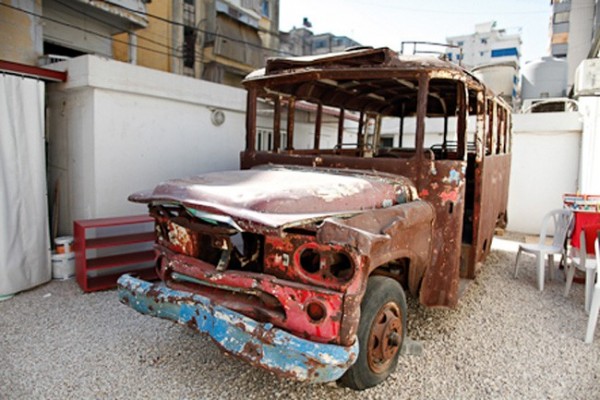The 1975 Beirut bus massacre , also known as the Ain el-Rammaneh incident and the Black Sunday, was the collective name given to a short series of armed clashes involving Phalangist and Palestinian elements in the streets of central Beirut, which is commonly presented as the spark that set off the 1975 Lebanese Civil War
- 63.3% favor abolishing the sectarian political system for secular state model
- 42.5% report direct personal or family harm from recent conflict
As Lebanon marks 50 years since the outbreak of its civil war on April 13, a new poll has revealed half of the Lebanese people questioned are worried the conflict could return amid a fragile ceasefire.
The survey, conducted jointly by Annahar newspaper and International Information, sampled 1,200 Lebanese citizens across all regions between March 25 and April 2.
It showed that 51.7 percent expressed varying degrees of concern about the war’s return, while 63.3 percent believed establishing a secular civil state by abolishing the sectarian political system represented the best path forward for the country.
A total of 42.5 percent of respondents reported direct harm to themselves or family members, including deaths or injuries (23.7 percent), property damage (19.9 percent), and forced displacement (19.5 percent).
In assessing Lebanese attitudes toward Iran’s role in Lebanon, 78.6 percent of respondents evaluated this role as negative, and 75.3 percent identified Israel as Lebanon’s primary adversary.
The survey came as Israel resumed attacks on Lebanon, claiming it is targeting Hezbollah infrastructure.
In a statement, Annahar’s management described the poll as an essential tool to understand present realities by examining present and past questions, noting the significant timing on the half-century mark of a conflict whose full lessons remain unlearned.
Public opinion remains deeply divided on how to characterize the war that erupted on April 13, 1975, with 40.7 percent describing it as a Lebanese civil war while 38.5 percent view it as a war for others “fought on our soil.”
A smaller segment (8.8 percent) consider it primarily a war related to Palestinian settlement issues.
Information about the war continued to be transmitted largely through personal channels, with 81.9 percent citing family and friends as their primary source of knowledge, followed by media (44.8 percent), personal experience (28.3 percent), and academic sources (13.4 percent), according to the poll.
(Arab News)

